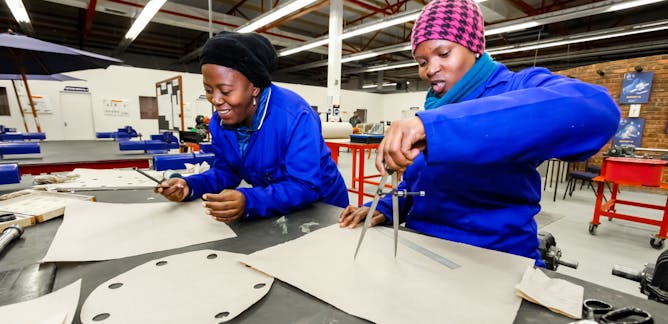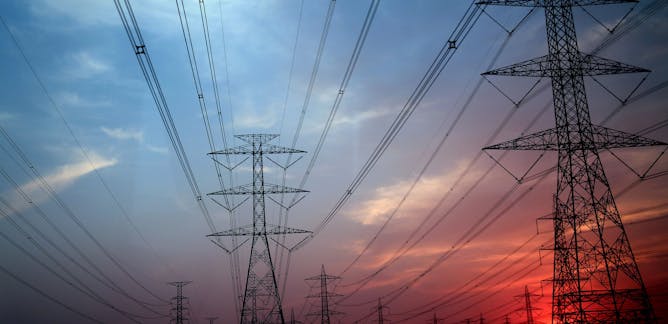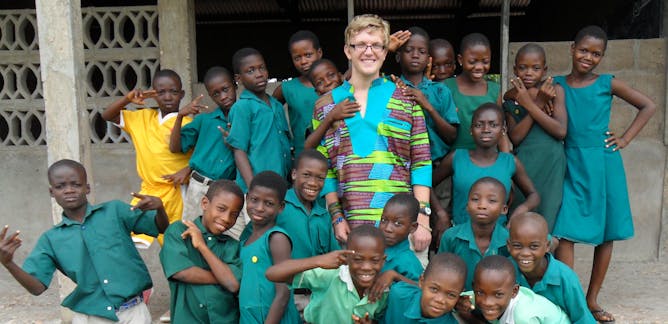|
In the first few years that South Africa was ruled by a democratically elected government, enormous strides were made in getting institutions and policies in place that promoted women’s rights and protected their interests. But after 25 years many of those gains have been rolled back. As the country celebrates Women’s Day on August 9 Amanda Gouws tracks the advances that were made, and then lost. Casting a wider geographical net, Sharon
Adetutu Omotoso looks at how social media platforms are doing women a disservice while Rachel Adams explains that women across the continent tend to have less access to internet based technologies than men - and this has very real effects.
|

African National Congress women’s league members marching to the home of the late Winnie Madikizela-Mandela in 2018.
EPA-EFE/Stringer
Amanda Gouws, Stellenbosch University
Women were able to pursue an impressive feminist agenda as South Africa made its transition to democracy. But 25 years later there's not a lot left of the early victories.
|
|
|

Sharon Adetutu Omotoso, University of Ibadan
Feminists in Africa must step up to the challenge and redress the manner in which African women are portrayed in the digital age.
| |

Rachel Adams, Human Sciences Research Council
The world of the fourth industrial revolution looks set to be one dominated by forms of knowledge and industries -- like science and technology -- that have long been dominated by men.
|
|
|
Business + Economy
|

Samuel Asumadu Sarkodie, Nord University
Ghana's experience is a cautionary tale for country's that find themselves in a situation of having too much electricity at any given point.
| |

Steven Friedman, University of Johannesburg
Secrecy over who funds political parties should trigger fears that government decisions will reflect the wishes of large donors.
|
|
|
En français
|

Alizée Delpierre, Sciences Po – USPC
Tourisme humanitaire ou arnaque ? Malgré leurs désillusions, les jeunes cherchant à voyager « autrement » ont du mal à critiquer leur expérience.
| |

Bastien Castagneyrol, Inra
De nombreux programmes élaborés par des scientifiques permettent à tout à chacun d’observer la nature et de contribuer à l’avancée des connaissances sur la biodiversité. Pourquoi pas vous ?
|
|
|
From our international editions
|

Lacey Wallace, Pennsylvania State University
More than 40 percent of U.S. adults have a gun in their household, making it hard to get guns off the streets – even if new gun restrictions are passed.
| |

Jean Strelitz, University of Cambridge
Drinking one less pint of beer a week could cut the risk of cardiovascular disease by almost half.
|
|
|